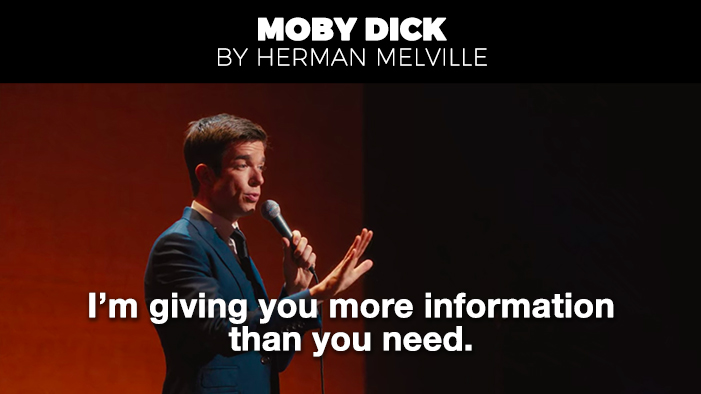The story’s exposition begins with long descriptions of Mrs. Freeman, Mrs. Hopewell, and Hulga. The descriptions are less about physical characteristics than they are about how they view themselves, each other, and the world around them. Mrs. Freeman has a high opinion of herself. While not educated or wealthy, she has practical, no-nonsense knowledge. She never admits to being wrong. Mrs. Freeman sees herself as “good country people” because Mrs. Hopewell says she is. She similarly looks down on “trash.” Her sympathy toward Hulga is less about caring for Hulga than her morbid curiosity regarding Hulga’s artificial leg.
Mrs. Hopewell owns the farm but has no interest in running it. Her worldview rests on trite aphorisms, such as “nothing is perfect,” and not on her faith or morals. Her Bible is somewhere in the attic. She owns it, but she doesn’t have much use for it. Instead, she admires “good country people” and what they represent. Mrs. Hopewell’s refusal to call her daughter Hulga shows that she doesn’t appreciate or understand her daughter. She continues to use the name Joy as a form of resistance to the changes Hulga makes in her life. She thinks Hulga’s education makes her complicated when she would prefer her to be simple.
The story’s main protagonist, Hulga, is Mrs. Hopewell’s grown daughter. Losing her leg in an accident left her feeling incomplete and ugly. She molded her inner self to match. In college, she changed her name from Joy to Hulga, the ugliest name she could think of. Her name change also reflects her rejection of her mother’s positive outlook on life. She believes that education makes her superior to those around her, especially her mother and Mrs. Freeman. Hulga would like to be far away from the “good country people.” She thinks her education in philosophy allows her to see the world as it really is. To her, as a matter of nihilistic belief, good and evil are illusions.
The story’s rising action involves the arrival of Manley Pointer, the antagonist. He is an outsider intruding on the isolated sanctuary of the Hopewell farm. Although he presents himself as a godly man, he is more like the serpent in their garden of Eden. Mrs. Hopewell is not impressed with him or his Bibles until he subtly suggests that he is one of the “good country people” that she admires. He tells her that he is simple, country born and raised, honest, uneducated, devoted to Christ and service, and not long for this world due to a weak heart. In reality, he is not good country people and instead plays on Mrs. Hopewell’s biases to get a meal and possible access to her daughter.
Although Hulga pretends to be disinterested, she intends to seduce Manley, as a matter of violating his sense of morality. She meets him outside as he leaves the farm, setting a secret rendezvous for the next day. She doesn’t want her mother to know about the meeting since she would likely approve of it. She also believes, like her mother, that Manley is “good country people,” and she desires to corrupt him, educating him in her nihilistic way of thinking.
The climax of the story comes when Hulga and Manley arrive at the barn and ascend to its hayloft. Hulga’s desire to corrupt Manley is worn away by his kisses, declarations of love, and simple earnestness. When she relents and says that she loves him, he demands proof. He wants her to show him her wooden leg. He plays on her pride, claiming that it makes her unique. Hulga has a moment of epiphany, where she gives up her cynicism and “surrender[s] to him completely . . . losing her own life and finding it again, miraculously, in his.” This marks a moment of complete vulnerability. Manley expresses to Hulga that her artificial leg is what sets her apart and makes her special. Hulga senses that "for the first time in her life she was face to face with real innocence." In this epiphany, her tough exterior softens, and she consents to reveal where her artificial leg connects to her body.
Hulga becomes physically and emotionally vulnerable when Manley removes her wooden leg, which is compared to her soul, and refuses to return it. He dashes her epiphany when he brings out his hollow Bible and shows her the whiskey, pornographic playing cards, and condoms. He pulls off his saintly mask and shows the sinner he is. Hulga’s education and worldly viewpoint have not helped her see through his disguise.
In the story’s falling action, Manley steals Hulga’s wooden leg and abandons her in the hayloft. Manley shows Hulga that, despite her philosophy, “[she] ain’t so smart.” Her intellectual superiority and cynicism have failed her. Her belief in nothing is nothing compared to his “believing in nothing ever since [he] was born.” She is left alone and helpless “in the dusty sunlight,” symbolizing her potential enlightenment to both the evil and the good in the world.


 payment page
payment page



